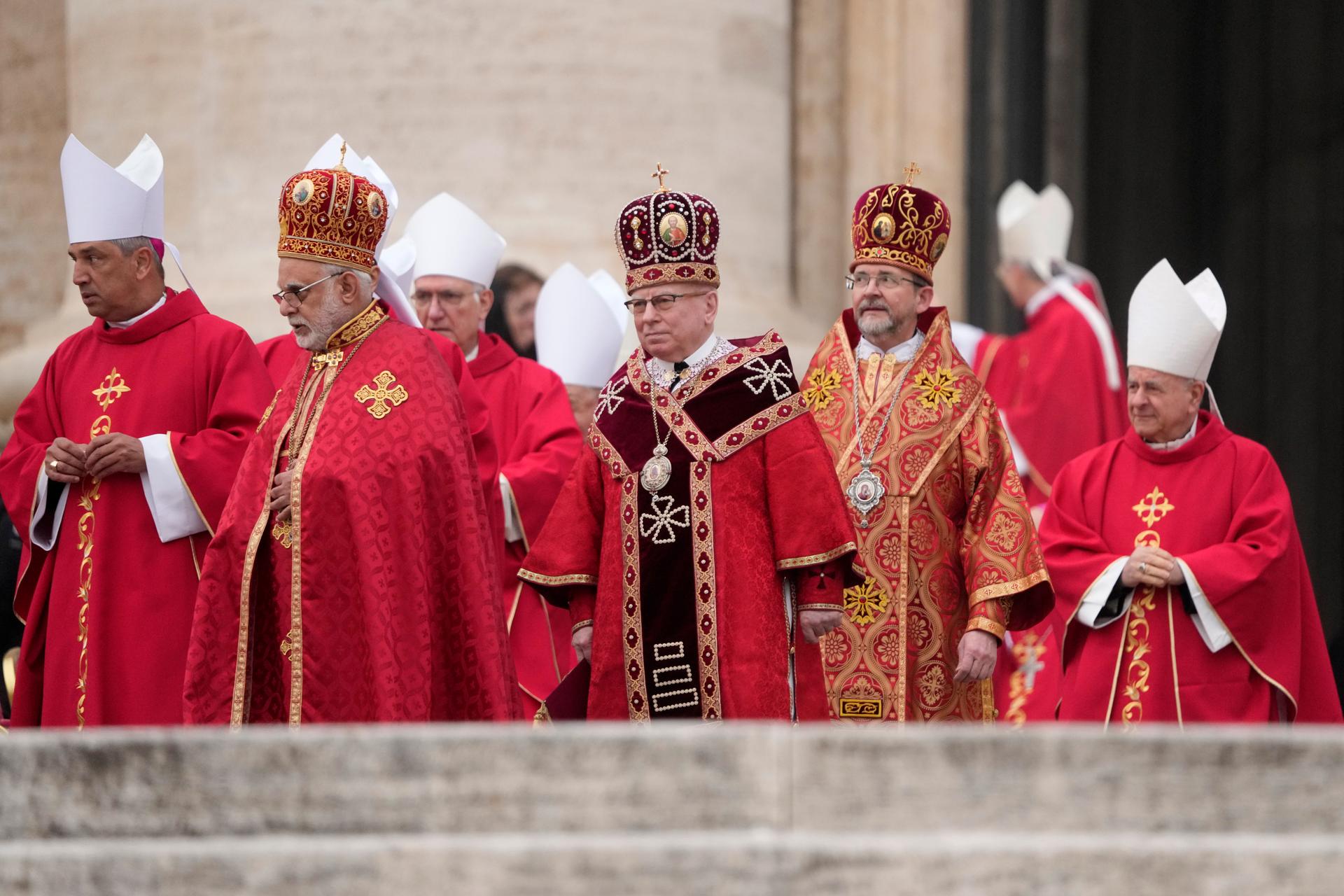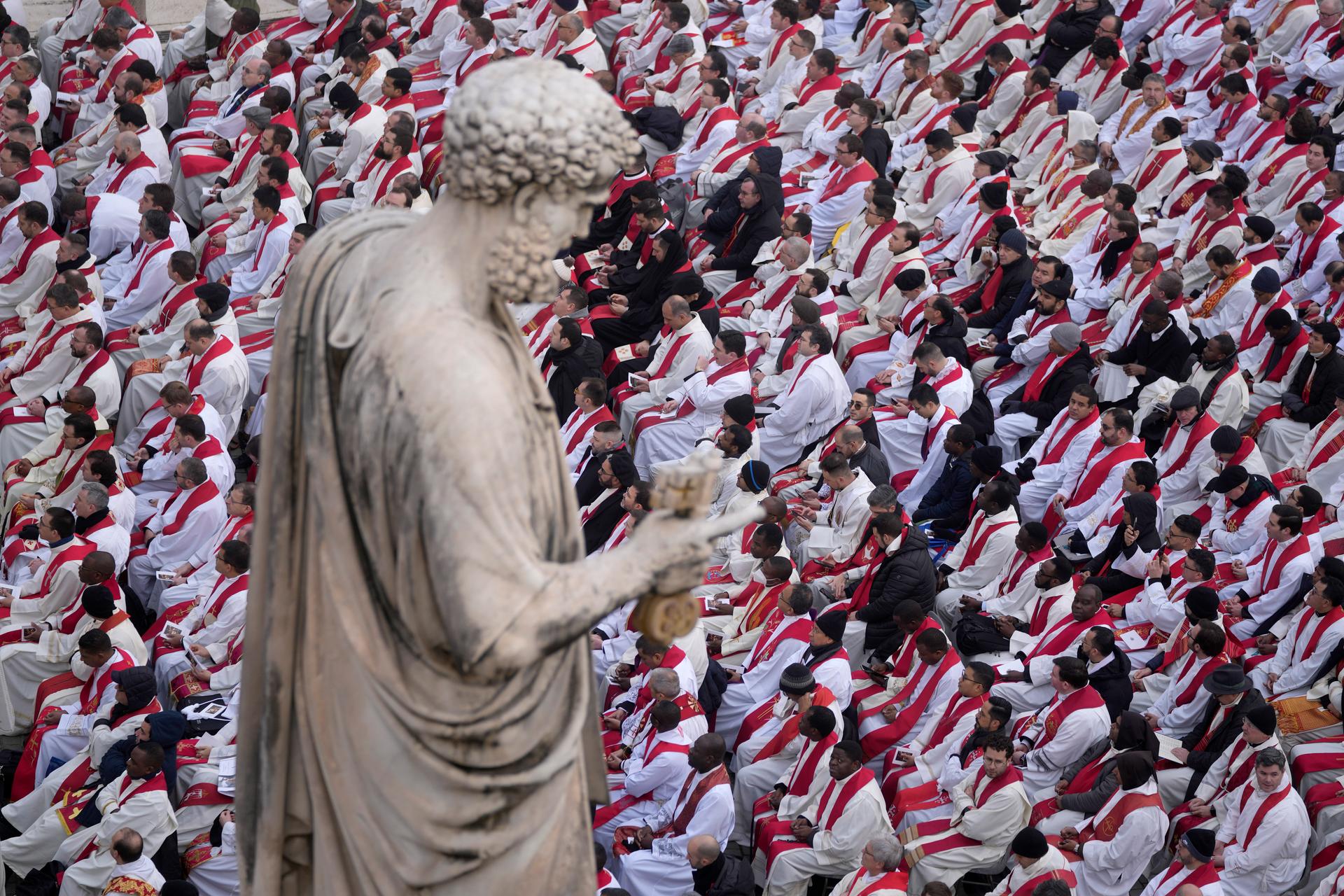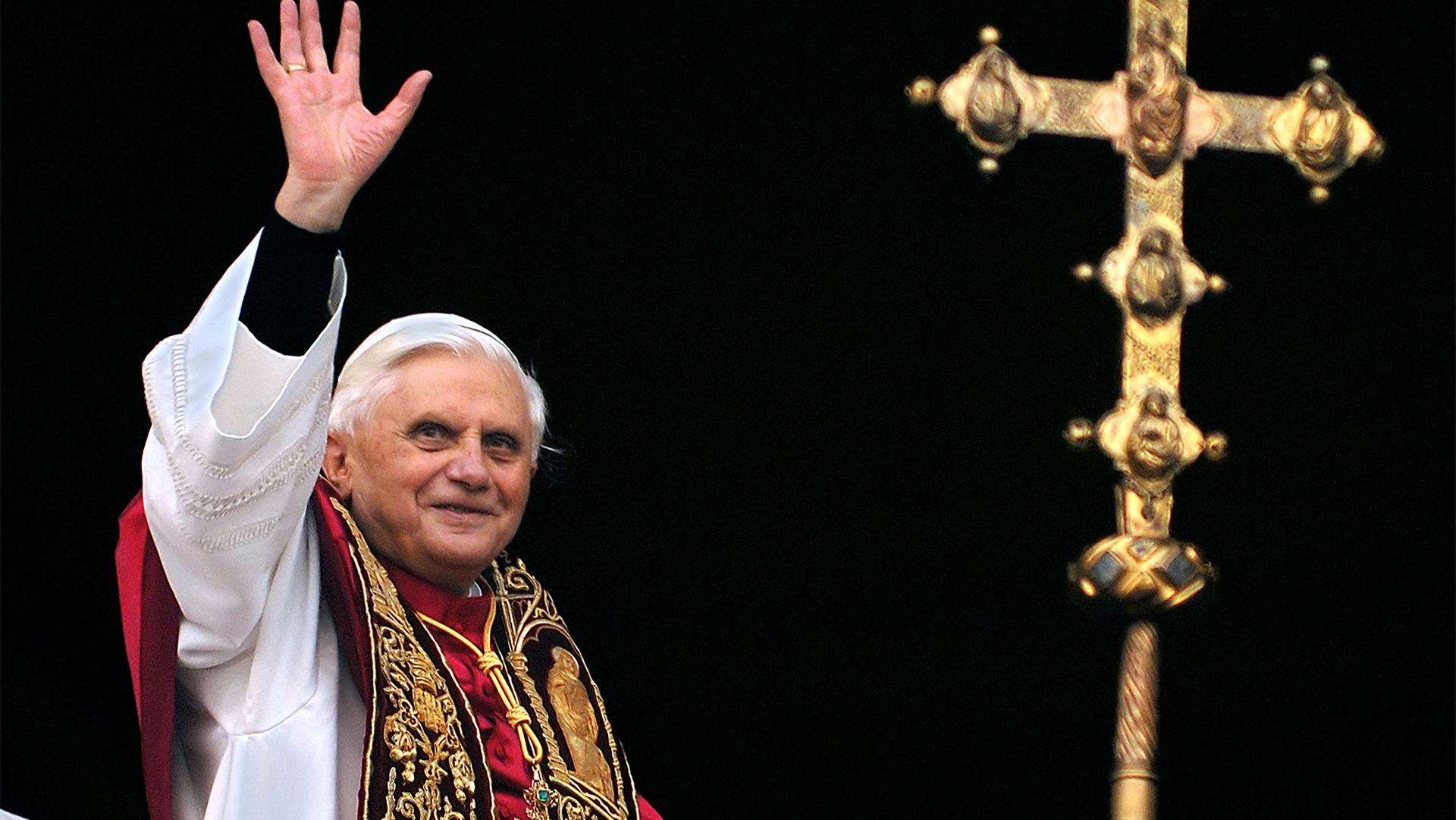Pope Emeritus Benedict XVI was laid to rest on Thursday. His funeral was held in St. Peter’s Square at the Vatican. Pope Francis led worshipers in prayer. Benedict made history when he resigned as pope in 2013, becoming the first sitting pope to do so in six centuries. Benedict continued to influence the Church even after his resignation.
The World’s host Carol Hills discussed the former pontiff’s legacy with Massimo Faggioli, a professor of historical theology at Villanova University, who joined the discussion from Italy.
Carol Hills: Massimo, let’s start with the funeral. Describe the scene for us and what stood out for you.
Massimo Faggioli: It stood out that it was a much smaller crowd compared to 2005, when [Pope] John Paul II had his funeral, and that it was a much [more] somber, much quieter and restrained ceremony. And the most important difference was that it was a funeral mass. It was not leading toward a conclave for the election of a new pope because there is already a sitting pope, Pope Francis.

How do you see Benedict’s overall legacy? I mean, will he be remembered most for resigning or something more?
I believe for something more. In terms of the papacy, it has [seen] many important decisions, especially on the front of the abuse crisis. But institutionally, it will be remembered for sure for the resignation. But let’s remember that he became a certain kind of icon, or a brand of Catholicism, even before becoming pope. He was already a well-known theologian in the late ’50s, early ’60s. He became the spokesperson for anti-liberal or non-progressive Catholicism. He has been extremely influential.
Now, he was Cardinal Ratzinger for many years, and he was quite conservative. In contrast to Benedict, Pope Francis appears to engage more on the social issues of our time and is seen as more open-minded. Was there any conflict between the two men and their ideologies?
So, there are certainly differences, but on most of them, there were no open conflicts. But there was one issue on which those visions collided, and it’s the issue of the liturgy, how to celebrate mass. One of the most consequential decisions made by Benedict as pope in 2007 was to allow Catholics to [be able to] access more easily the mass celebrated in Latin, right before the second Vatican Council, [in] 1963, ’64, which is one law that Pope Francis reversed in 2021.
So, Pope Benedict wanted the mass to continue to be available in Latin. And Pope Francis really wanted to discontinue that. Is that the essence of it?
That’s the essence of it, yes.

Where does the Catholic Church go from here under the current leadership of Pope Francis? I mean, does Benedict’s passing change anything or not?
Well, it changes something because a more conservative Catholic culture has lost its eponymous leader that was at the helm of a certain kind of theology and of [a] worship style for almost half a century. What doesn’t change is that in very wide circles within Catholicism, meaning bishops and the clergy, it is still very much Ratzinger’s church. [Benedict XVI’s original name is Joseph Alois Ratzinger.]
So, Pope Francis inherited many of the bishops that Pope Benedict appointed?
Absolutely, especially in the United States. Every time there is an election within the national bishops conference — the United States Conference of Catholic Bishops (USCCB) — those who are called Francis bishops, they always lose. And this still happens almost 10 years after his election.
Pope Francis has been observed to be in declining health. How strong is the speculation that he may choose to step down now that Pope Benedict has died?
I really don’t see Pope Francis resigning and then burying himself in a monastery. He’s a man of the streets, not a monk who’s content with his books in the library.
This interview has been lightly edited and condensed for clarity.
Related: Pope Francis’ historic trip to Iraq embraced by many as a welcome boost
Sign up for our daily newsletter
